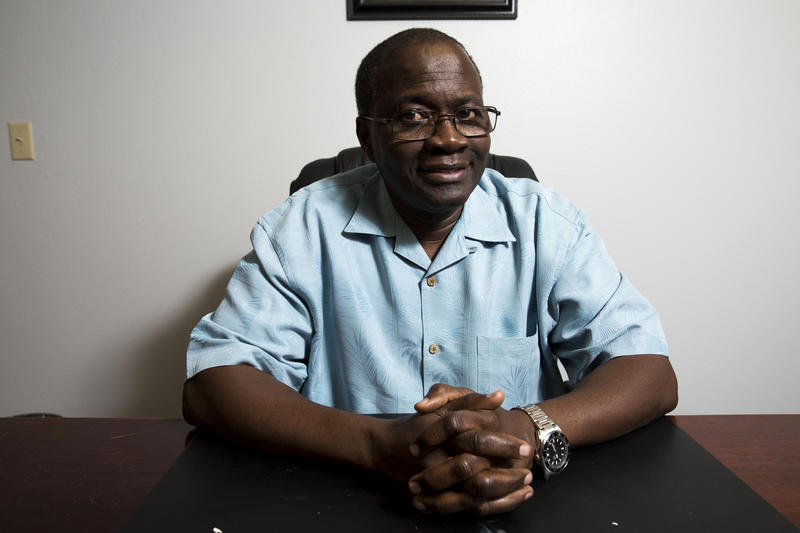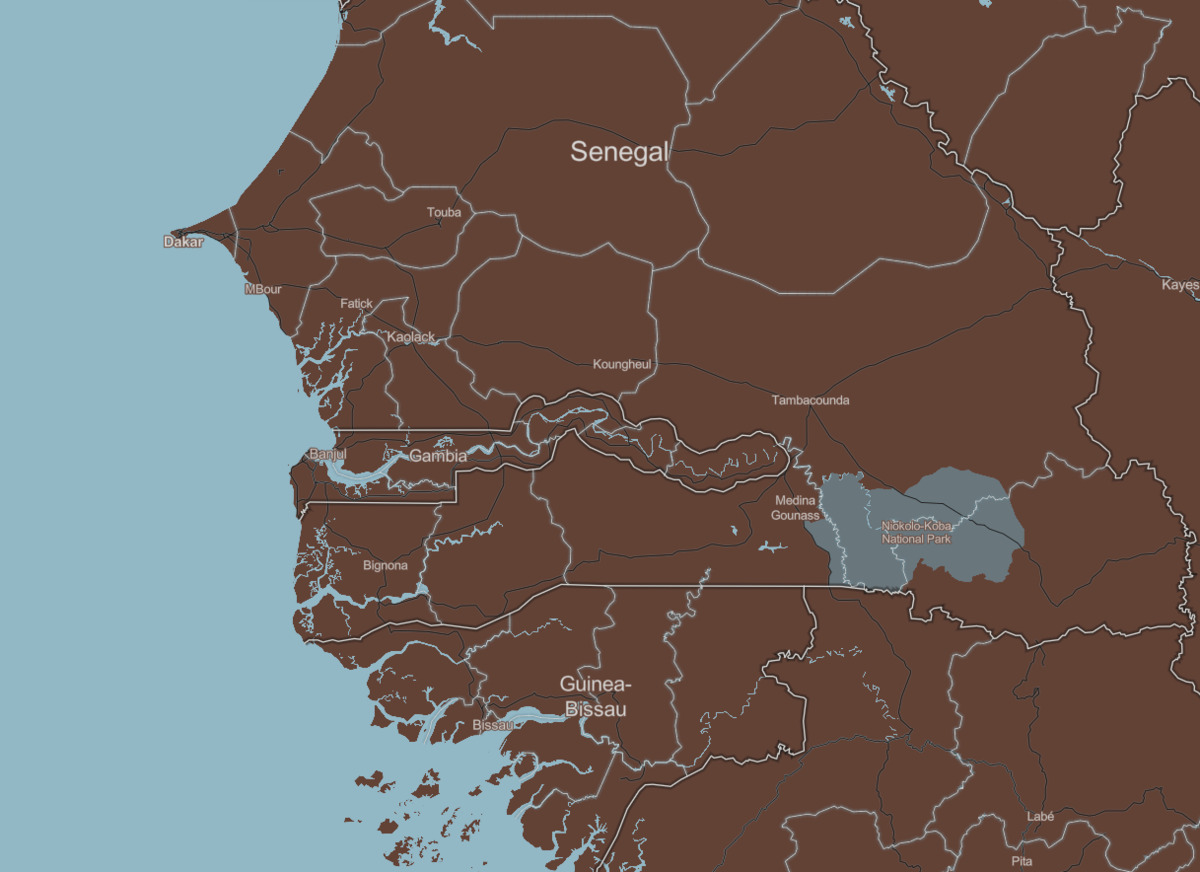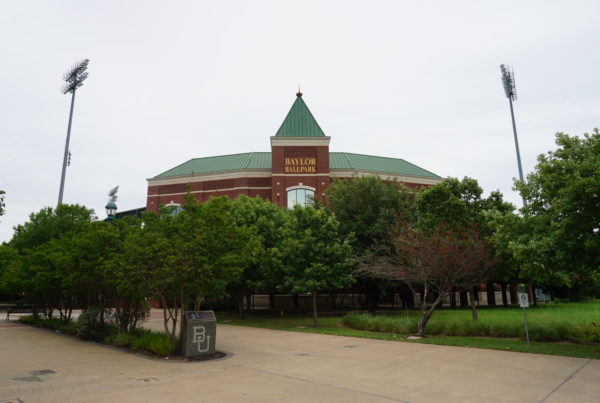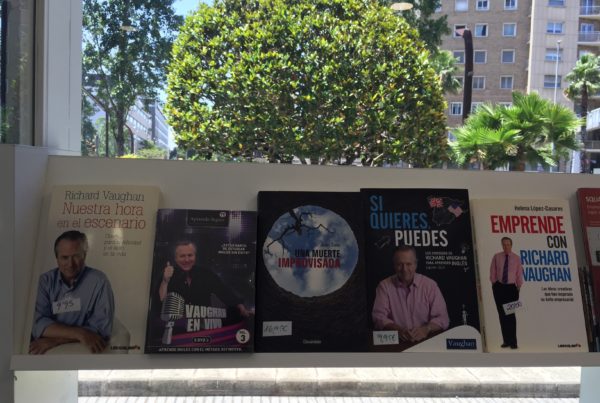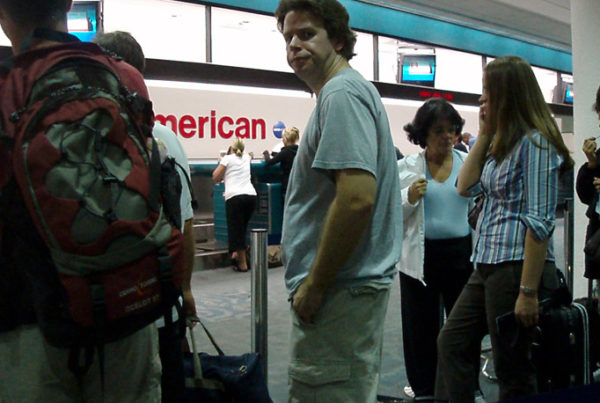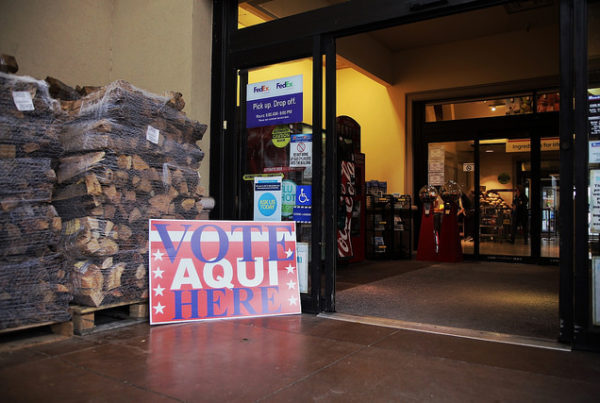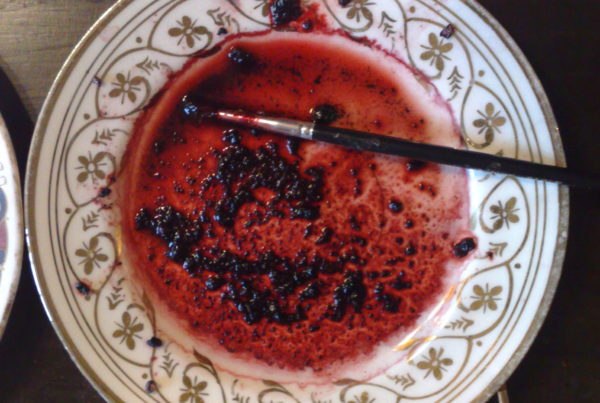From KUT:
If there were a checklist of things to do in Austin, Cherno Nije would have checked a lot of boxes.
He moved to Austin in 1985 to attend UT. He worked for the state, raised a family, moved to Lakeway and eventually started a real estate development firm. He enjoys going to jazz shows downtown.
He also plotted a coup d’état.
In 2014, the Austinite helped hatch a plan to overthrow the Gambian government. If it had been successful, he would have become president of the West African nation.
Why would a successful real estate developer want to leave Texas in the middle of an economic boom, putting his and others’ lives in danger? To answer that, it’s important to know more about Yahya Jammeh.
‘His Excellency’
For more than 22 years, Jammeh was the leader of Gambia. The tiny country hugs the Gambia River and is bounded on three sides by Senegal, with the Atlantic Ocean to the west. Jammeh ruled a population smaller than the Austin metro area.
“It’s just 40 miles by 400 miles, so it’s a very small alleyway,” says Banke Manneh, a native Gambian who lives in Atlanta. “And so everybody knows everybody. If I don’t know you, I know your brother or a sister, or your uncle and my uncle are best friends, or your aunt and my mom are close. Somehow, somewhere, in some respect, there will be a connection.”
Like Nije, Manneh is an outspoken critic of Jammeh. He says Jammeh’s rule was growing increasingly unpredictable.
Jammeh made outlandish claims, saying he was a self-taught healer that could cure AIDS and infertility. He told the BBC he would rule Gambia for a billion years if God was willing. He once threatened to behead all homosexuals and condemned the European Union and the U.S. for – in his words – promoting homosexuality as a human right.
He, also insisted on adding titles to his name, so that last year he was officially referred to in country as “His Excellency Sheikh Professor Alhaji Doctor Yahya Awal Jemus Junkung Jammeh Babili Mansa” – the last two words mean “bridge-builder.”
“Things had gotten worse,” says Manneh. “Jammeh had become more brazen. In fact, he became more brutal. The killings, the disappearances, the abuse literally intensified over those two decades.”
A ‘bloodless coup’
Manneh grew frustrated. After years of activism from abroad, trying to raise awareness of Jammeh’s behavior, he didn’t think he was getting anywhere.
“Something in you keeps saying, ‘You got to end this. This has got to stop. This has got to stop.,” he says.
Like Gambia itself, the ex-pat community in the United States is small and relatively intertwined. Manneh had been discussing the next steps with fellow Gambians living here. They started talking about a coup. Manneh said that when they began to move forward, he knew funding would be an issue. He knew one person who would be able to help: Cherno Nije.
“I had been a supporter of the opposition parties, as well as activists,” says Njie. “I had sponsored some broadcasts in a neighboring country, because the media in Gambia is totally under the thumb of the government.”
With funds in hand, the group set out to buy weapons – mostly from gun shops here in the U.S. – and those weapons were smuggled into Gambia. The plot was underway.
It was a simple plan. Eight men would rush the statehouse – the equivalent of the White House – while President Jammeh was out of the country. They believed there would be friendly faces inside who would be easily convinced to support their cause. The army would then fall in line. Njie was set to deliver a message on the state-run TV and radio. Once the other dominoes had fallen, he would then assume the role of president in the interim government until democratic elections could be held.
A bloodless coup d’état: If it sounds far-fetched, it’s not. In fact, a nearly identical plan worked in 1994 when four junior army officers walked into an empty statehouse and took over Gambia. One of those men was a 29-year-old Yahya Jammeh.
But in December 2014, things didn’t go as well for the would-be revolutionaries.
Papa Faal of Minnesota spent a decade in the U.S. Air Force and Army, serving in Afghanistan, and joined the coup attempt.
“The guy who was responsible for the statehouse gave us the green light to come,” he says. “When we came, unfortunately, he had something else in mind. He betrayed us.”
The group met fierce opposition at the statehouse. Several members of the group were killed. Faal managed to escape to Senegal.
Afterward, President Jammeh returned to Banjul, the capital, and denied there was a coup attempt on state-controlled television.


